The current fury over Hearthstone's 'greed' has been coming for years
Despite adjustments to the rewards system, the controversy over cost is set to continue.
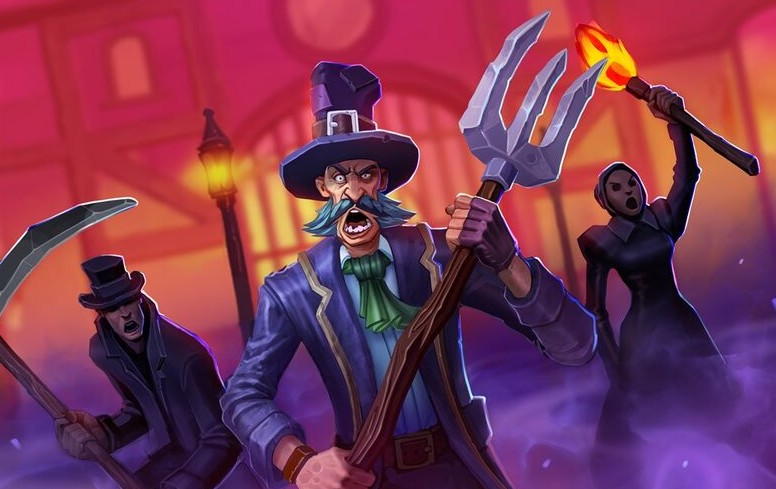
The Hearthstone community has come close to full mutiny many times in the past. Veterans of the scene will remember the mood during the Undertaker meta, the Purify debacle, when extra deck slots were too confusing, the nuclear Warsong Commander nerf… I could go on. The biggest controversy in the game's history came just over a year ago, when Blizzard made mainstream news after the rushed decision to ban Grandmaster player Ng "Blitzchung" Wai Chung for advocating on behalf of Hong Kong against China during an esports broadcast. That call eventually resulted in an on-stage apology at BlizzCon, and the return of the prize money which had been stripped from the competitor.
Most of us who follow the game didn't expect to experience another brouhaha like the Blitzchung blow-up, but the chaos of the past month is starting to run it close. Here's a primer for the uninitiated. During the last expansion cycle, Blizzard repeatedly teased a root-and-branch revamp of Hearthstone's outdated progression system. The new structure, explained the company, would resemble something similar to the experience grind players might find in 'live' games like Call of Duty or League of Legends. By completing achievements on the rewards track, Hearthstone regulars would access bonus card packs, cosmetics, and in-game gold.
The most dedicated could purchase a $20 Battle Pass, sweetening the pot with more bonuses along the way. All of that sounded promising, but the community was understandably wary. Was Blizzard obfuscating the exact amount of gold we'd be able to earn under the new model? Was Hearthstone, a notoriously expensive game, about to become less friendly to the free-to-play base than ever before? Not so, said the developers. In fact, they promised that most players would, in fact, be earning more gold than ever before.
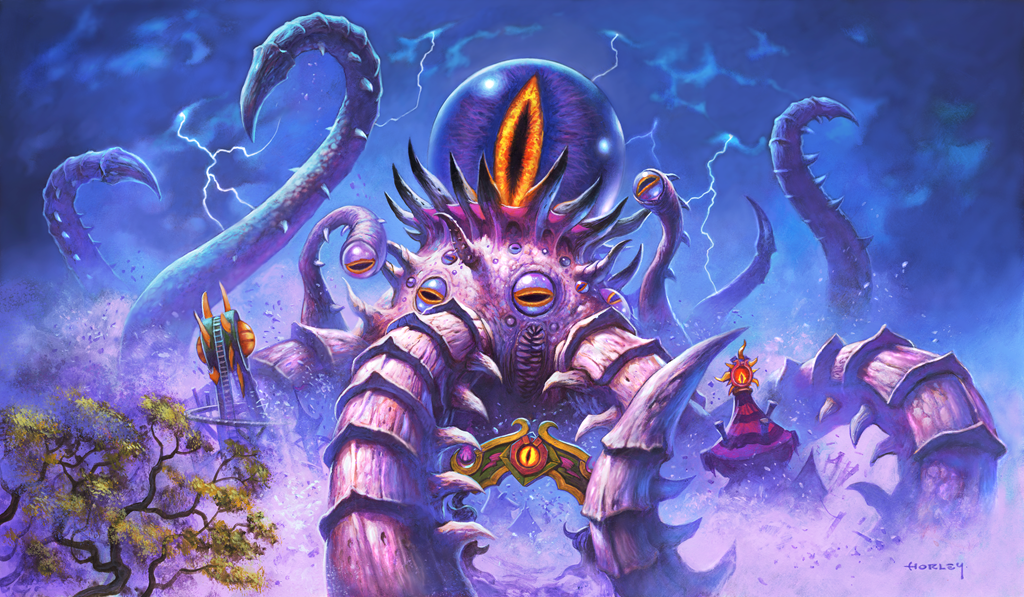
Of course, when the new system hit live servers, the Hearthstone community swiftly combusted. I won't belabor the number-crunching, but the more mathematically-inclined players essentially determined that the new progression system wasn't offering a more egalitarian solution. In fact, it became clear that Hearthstone had become significantly stingier—in part due to how grindy the XP requirements became further down the track.
For example, streamer J_Alexander, who has become one of the most vocal critics of the new system, calculated that he'd earn 5,000 less gold over 120 days of playtime compared to previous expansion cycles. As a consequence, the Hearthstone subreddit soon became borderline unusable, such was the influx of increasingly angry threads from players either threatening to quit the game or claiming to have already done so.
The Reddit threads kept coming and each promotional message from a Hearthstone social media account was met by a slew of furious responses.
A new expansion is usually a time of jubilation, but every platform on which the game is regularly discussed was overrun with accusations of corporate greed. One boycotter said that they'd be donating the money they intended to spend on this new expansion to Wikipedia's pledge drive. Another created a "new" card called "Blizzard's Scheme." Its text reads: "Rip Off 1 Loyal Customer." Many of the developers were also on the receiving end of unpleasant attacks via social media.
A key part of the problem was that players felt that they'd been intentionally deceived. We covered the initial anger here and broke down the numbers proving that the new reward system was less rewarding here. What didn't happen was any sort of cooling off. The Reddit threads kept coming and each promotional message from a Hearthstone social media account was immediately met by a slew of furious responses.
The biggest gaming news, reviews and hardware deals
Keep up to date with the most important stories and the best deals, as picked by the PC Gamer team.
(In the video below Dekkster gives his response to the original iteration of Hearthstone's revamped rewards system, which has since been made more player friendly, but remains a fraught topic for fans.)
The situation culminated early last week when Blizzard announced a slew of reforms to Hearthstone's rewards track. It's now easier to earn XP and gold (while getting facerolled by the legion of aggro Demon Hunters currently patrolling the ladder). Some sort of response was inevitable, particularly with the World Championships also taking place last weekend, but in hindsight, the announcement, while welcome, felt like throwing a bucket of water on a still very sizable house fire.
The changes Blizzard has made seem smart and reasonable, but functionally all they do is soften the edges of Hearthstone's brutal monetization praxis; making the model a little gentler without changing the core cost of building a competitive collection. Certainly, judging by the state of chat during the World Championship broadcast—constantly spamming #StopBlizzardGreed—this will not be the end of the matter.
Hearthstone's cost crisis presents opportunity for competitors
What we're seeing now feels like the pot finally boiling over when it comes to Hearthstone's financial model. I've been playing for six years, and I've committed thousands of dollars to chasing its carrots. My editor confirms that, the last time he checked, he'd sunk over $2,500 into the game—and that was a couple of years ago.
It was easy to make peace with that spend in 2015, or 2017, or even 2019 for that matter. But as the game gets older, and the market becomes increasingly crowded with competitors, the discomfort felt from Hearthstone's brutal financial demands has become unbearable for many.
I think we're at a really pivotal point in the game's history where players have a good opportunity to speak up, in a constructive way, about what they'd like to see changed and have that be heard.
—Mihai "Languagehacker" Dragalin
"This is the point where people are asking themselves, 'What am I getting out of the game, and am I happy about it?'" says Mihai "Languagehacker" Dragalin, another Grandmaster player. "Part of it is fatigue, part of it is the cost of the CCG model, part of it is the ongoing pandemic as well, and I'm sure I could dig for a couple of more reasons, but the progression system seemed to be the catalyst which started these thoughts and discussions. I think we're at a really pivotal point in the game's history where players have a good opportunity to speak up, in a constructive way, about what they'd like to see changed and have that be heard."
In other words, the rewards track—much like Marie Antoinette's cake comments or The Tea Act—was the spark that set off a revolt that had been simmering long before it erupted. Nothing about the insurrection was surprising. The question is where we go from here.
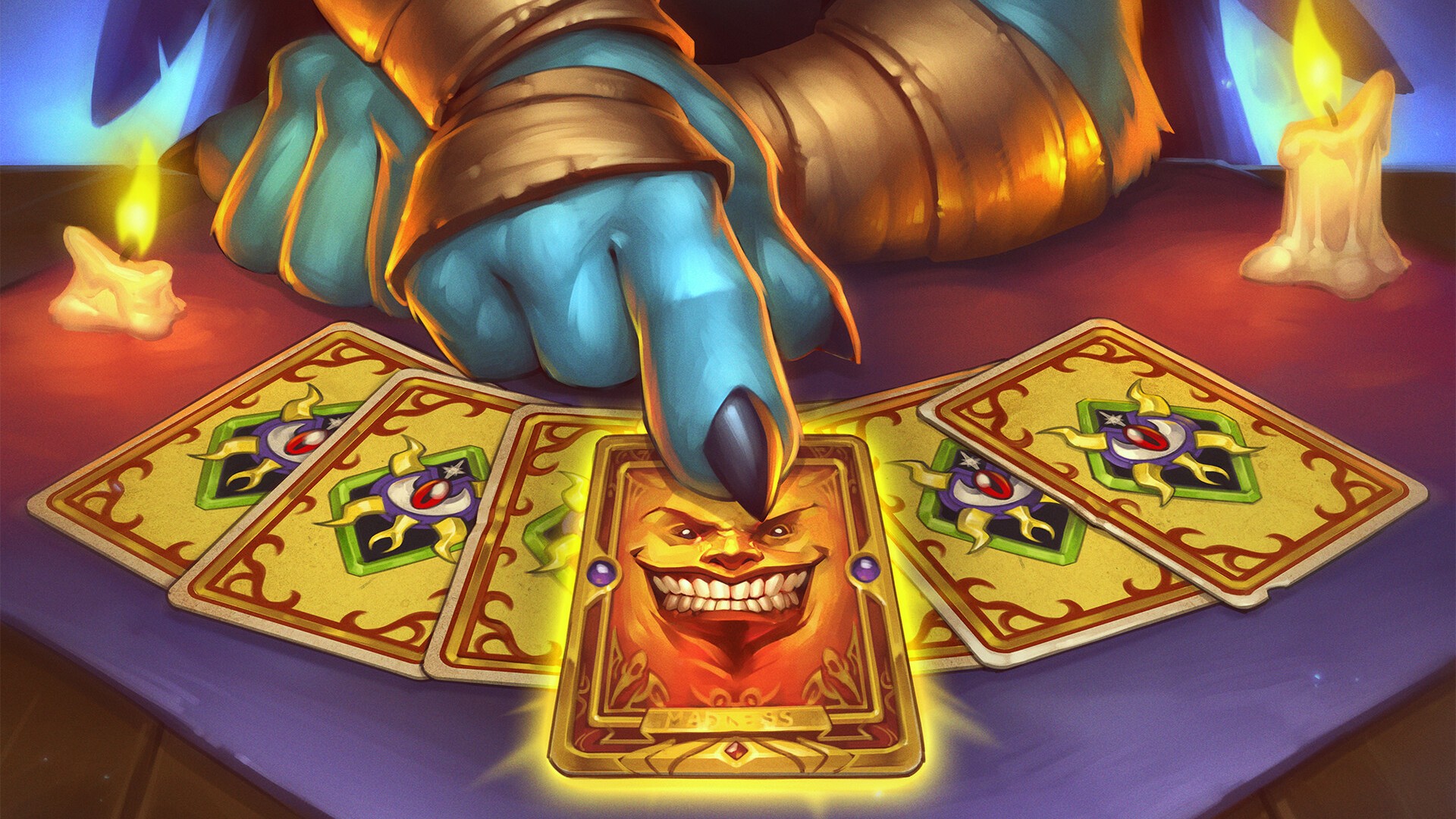
One of the most popular posts submitted to the Hearthstone subreddit in recent weeks is a screengrab from Riot's upstart CCG, Legends of Runeterra. In that image, a player marvels at how they've collected every card in the game, despite never spending a dime in its store. "This would be a pipe dream for a Hearthstone player," reads the headline. Riot, of course, has emphasized this strategy throughout Runeterra's rise—the company wants to build an economy around skins, card backs, and other cosmetic doodads, rather than the competitive makeup of each deck.
Hearthstone, on the other hand, still primarily relies on a model in which card packs work not dissimilarly to loot boxes—and you have to buy in bulk, either using in-game gold or real money, every few months.
This was less of a point of contention when Hearthstone had few digital alternatives. Hearthstone dominated the landscape when there weren't any major rival CCGs competing for the same real estate (apologies to the Elder Scrolls: Legends heads out there). But now, with the success of Runeterra, Magic: The Gathering Arena, Slay the Spire and the glut of other good card-based games out there, players are flush with alternatives that make Blizzard's F2P model look tightfisted.
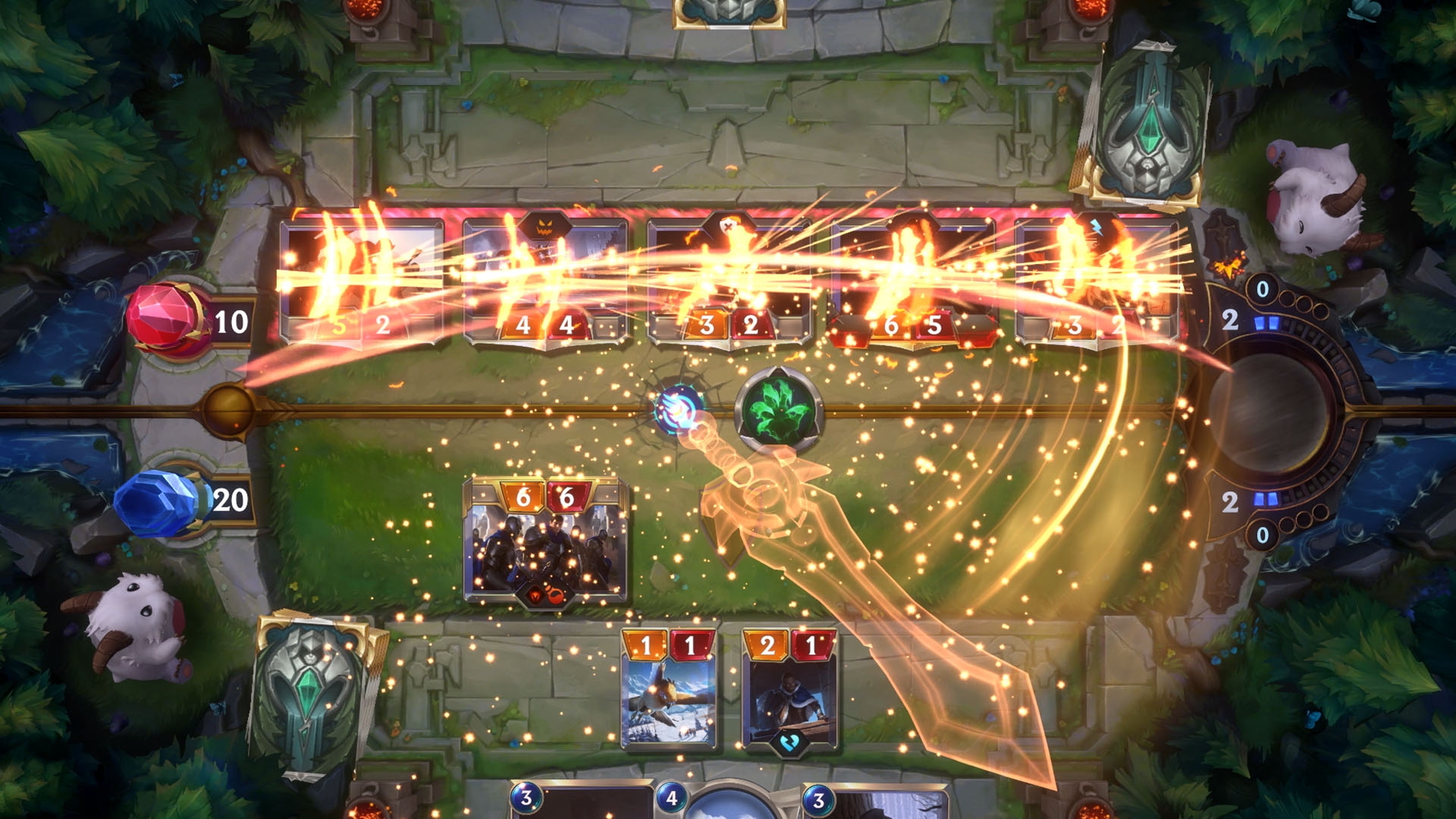
This is a good business strategy for Riot. That company is well aware that Hearthstone is the market leader, and so has specifically targeted one of the player base's main annoyances. From my interviews, it's clear that Riot's approach—as the underdog—has caused Hearthstone's core group of gamers to reconsider their attitude to spending.
"Runeterra is specifically trying to undercut Hearthstone on cost as one of its selling points, so I don’t think it’s reasonable to ever expect Blizzard to get all the way down to that level," says Nicholas "DeckTech" Weiss, a Hearthstone writer and regular high Legend player. "I don't see them doing a complete [monetization] revamp again."
Time will tell if that's true, but for now, it's clear that the other digital CCG games—many of whom don't have to answer to shareholders who view anything other than quarter-on-quarter growth as failure—are able to leverage cost in a way that an old dog like Hearthstone almost certainly can't. Legends of Runeterra's only priority is to grow its playerbase. I doubt Blizzard's accountants would be too excited about slashing profit out of a six year-old game just to improve player sentiment.
Hearthstone is a cheap card game and an expensive video game... I spend $120 every four months on Hearthstone, and that's the price of a single Magic deck. But it's not 2014 anymore, and we're not making that argument.
—Ben "Ridiculous Hat" Goodman
That problem is pretty ironic if you know the history. It wasn't so long ago that Hearthstone was perceived as a budget-friendly alternative to physical card games. Ben "Ridiculous Hat" Goodman, a Hearthstone writer and podcaster, notes that traditional CCGs—like Magic: The Gathering—are even more expensive to collect, with the caveat that you can re-sell your cards once you're done with them.
"Hearthstone is a cheap card game and an expensive videogame," says Goodman. "I spend $120 every four months on Hearthstone, and that's the price of a single Magic deck. But it's not 2014 anymore, and we're not making that argument."
Goodman believes the biggest mistake Blizzard made with the rollout of its new progression track was actually that the company inadvertently asked its players to pay closer attention to its economics—which were never that player-friendly to begin with.
Now, players everywhere are much more keyed into the levers that determine exactly how costly Hearthstone can be, and that is a difficult genie to bottle back up. You can see exactly that problem in response to Blizzard's recent announcement about changes to the rewards track. Goodman notes that some in the community seemed momentarily satisfied by the changes, but others became more conspiratorial.
"The most sinister theory is that [the initial rewards track] was a lowball that would have stuck if people weren't upset," he says. "I find that hard to swallow, since the month of really vocal negativity has been awful PR, but it's hard to prove … The more general conversation is that, 'The game is still too expensive'—and that kind of tells us that controversy isn't about [the specific details of] the track itself. "
But what does the data say?
The funny thing is that beyond all the outrage on Reddit and in Twitch chat, it remains impossible to evaluate how far reaching the effects of the controversy are among a vast player base that is inherently casual. Could this just be a storm in a subreddit? What evidence we can gather suggests that may be the case.
Tiago Taparelli is the director of business operations at HSReplay, which tracks millions of matches every day to give competitive players better insight into the decks that are dominating the meta. That data-scraping also gives Taparelli unique insight into the ebbs and flows of Hearthstone's popularity. Thus far, he hasn't noticed much of a dip.
"Hearthstone definitely isn't at its all-time peak, but from the data we have, I feel pretty safe in saying that the game is not dying. If anything, it's a lot more diversified," he says. "What I think is happening is that Standard feels stagnant and that game mode might be declining from what we see. But Battlegrounds, throughout the majority of an expansion cycle, is significantly more popular than Standard. Wild is more popular than ever. We're seeing a decent amount of user interest in Duels. My overall take is that the game isn't declining. There are a number of different ways to play the game that are still flowering."
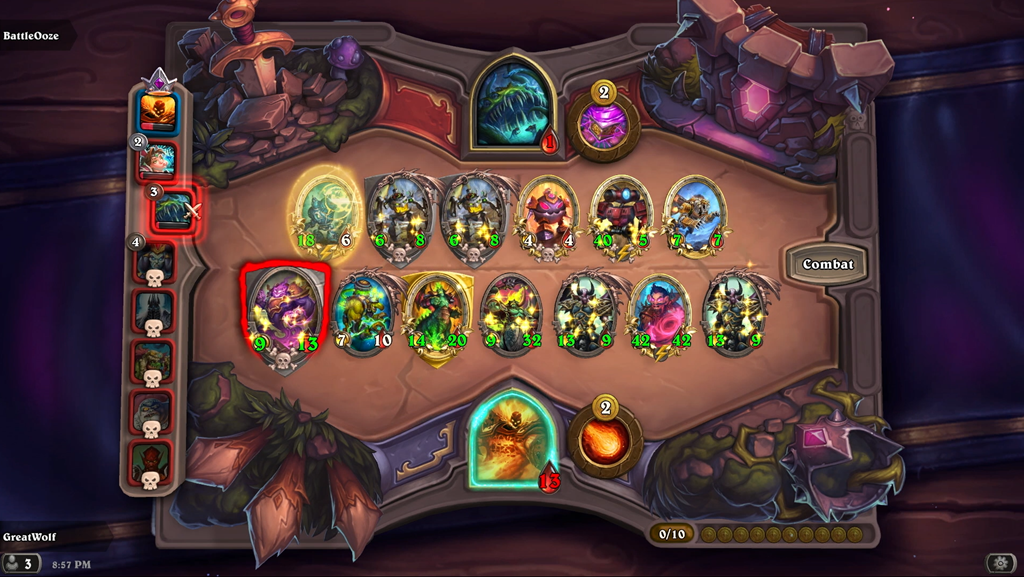
Taparelli raises a crucial point. Battlegrounds is a genuine phenomenon; attracting widespread interest from casual players, streamers, and competitive players alike. It's easy to see why—it's fun, and it offers a slightly more passive take on Hearthstone's basic conceit—but most importantly, Battlegrounds is free. It is instructive, I think, when considering all of the vitriol aimed at Blizzard developers over the past month, that the most ascendant portion of the Hearthstone experience is also the cheapest.
If I'm honest, that causes me a bit of anxiety. I'm a traditional Hearthstone player at heart, and I've fallen deep into my routine of purchasing three expansions a year and scouring through the insurgent decklists online. I doubt that will ever go away completely, but with the growing sense of fatigue surrounding Hearthstone's monetization, and Taparelli's report that Hearthstone's newer offshoots are eclipsing the core experience, it makes me wonder how healthy Hearthstone—not the auto-chess battler, or the roguelike, but the CCG—will remain in the future.
"The game needs to evolve," says Taparelli. "I think it's natural for Blizzard to focus more on these new game modes that players are responding to." He's right, but if anything that only makes the conversation around the cost of the core mode seem all the more urgent.
Blizzard is clearly on a goodwill drive right now, and today gave players 500 Gold and five Madness at the Darkmoon Faire packs just for logging in. However, the next flash point is likely to be the looming release of a mini-set—the first of its kind—which is designed to both refresh the meta and extract more money from those same mutinying players. Good luck with that.

Luke Winkie is a freelance journalist and contributor to many publications, including PC Gamer, The New York Times, Gawker, Slate, and Mel Magazine. In between bouts of writing about Hearthstone, World of Warcraft and Twitch culture here on PC Gamer, Luke also publishes the newsletter On Posting. As a self-described "chronic poster," Luke has "spent hours deep-scrolling through surreptitious Likes tabs to uncover the root of intra-publication beef and broken down quote-tweet animosity like it’s Super Bowl tape." When he graduated from journalism school, he had no idea how bad it was going to get.

